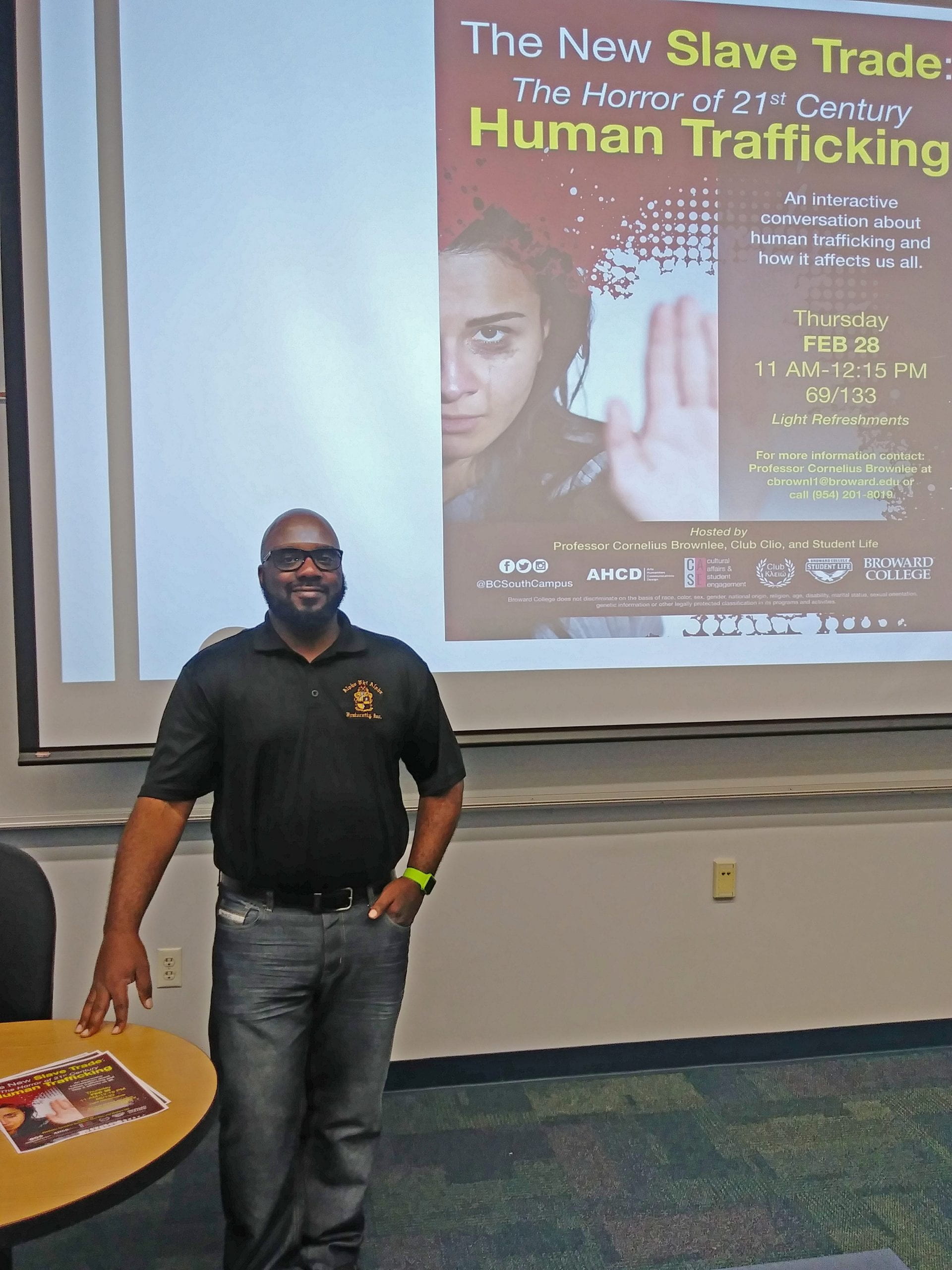Thandie Brown
Staff Writer
As of January 2018, The Florida Department of Health estimated that more than 20 million men, women and children around the world are victims of human trafficking; Florida is ranked as the third highest trafficking destination in the country.
South Campus speech professor, Professor Cornelius Brownlee and member of the Statewide Council on Human Trafficking, said that there is only one official facility solely dedicated to Human Trafficking Survivors located in Central Florida.
Appointed into the council in 2008 by former Florida Governor, Charlie Christ, Brownlee said that human trafficking is experienced in two common ways: domestic, commercial and sexual.
The obvious and hidden acts of human and sex trafficking are acknowledged by Brownlee as demonstrating similar characteristics of slavery in the likeness that victims are held against their will, threatened, taken across state borders, heavily drugged, abused in labor or bodily access, and exploited for their lack of understanding of language, or of the law.
Funding from the state, according to Brownlee is pushed toward women’s support shelters, but include spaces created for victims of human trafficking and that an initiative that is being pushed by advocates across the state is the increase in training shelters receive to better house and understand the cases they encounter. Shelters solely for human trafficking are also being pushed to allow better inclusion and rehabilitation to be available for those who are survivors of the act.
Brownlee referenced hot spots around the country like Las Vegas and mentioned large events like South Florida’s Superbowl 2020, going to be held at Miami’s Hard Rock Stadium, have already provided an incentive for law enforcement locally, and statewide to increase their activity and training to spot and or prevent human trafficking. He mentions that task forces are made up of FBI, local law enforcement, volunteers and other resources set aside specifically to handle the issues that human trafficking entail.
“There is no such thing as being too safe,” he said.
His references mention the importance of citizens in hospitals, classrooms, shelters, and law enforcement officers to be mindful of their positions as they can spot the patterns of human trafficking.
Knowing the difference between a human trafficker and a person being trafficked also make the difference in a case. Brownlee says, “people like to see the shock factor,” like the rising allegations against the New England Patriots owner, Robert Kraft, where his case draws attention from fans, support groups and sports viewers that further solidify the purpose of organizations against human trafficking.
The difficulty that frames the issue deal with the smaller details like county and state definitions of the age of minors and the use of case law in a court of law that defend or refute the legitimacy of a human trafficking case.
Brownlee mentions that defenders can overcharge the allegations and that the case may be thrown out or not given the right amount of justice. He says, “the public is disappointed, the people are disappointed, and the victim is revictimized while the offenders go free,” under the influence of too much public opinion.
He stresses our need as citizens to be mindful of where we are and who we encounter as he says, “it is right in our backyard.”
Though delivered before our spring break, the afternoon session holds information that lasts for the remainder of our lives as human trafficking affects women, men and children any time of day in any area.
For more information, contact Professor Cornelius Brownlee at cbrownl@broward.edu or visit www.dcf.state.fl.us.
browt175@mail.broward.edu
Photo: Professor Cornelius Brownlee presenting The New SlaveTrade: The Horror of the 21st Century Human Trafficking. Thandie Brown/The Observer
